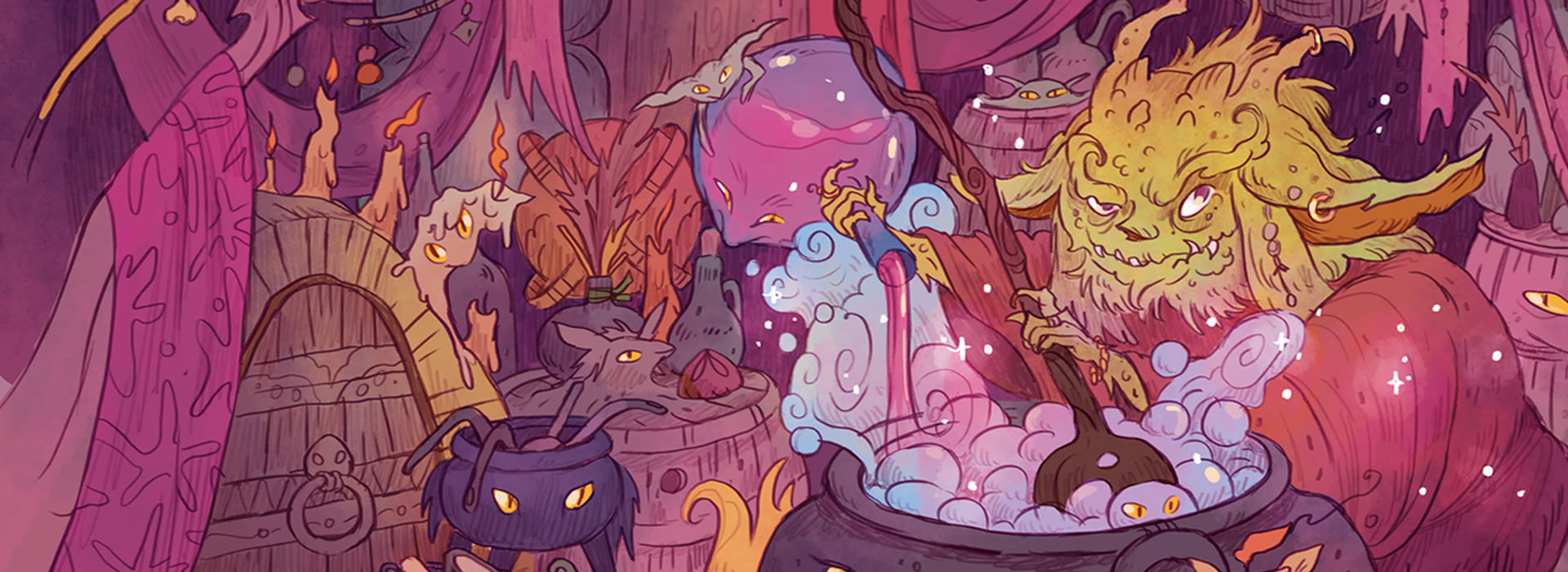
Turtle Team-Up: A Cooperative Way to Play and Teach Magic
Discover Turtle Team-Up, a cooperative Magic experience that welcomes new players, engages families, and helps WPN stores turn fans into long-term players.

Turtle Team-Up: A Cooperative Way to Play and Teach Magic
Discover Turtle Team-Up, a cooperative Magic experience that welcomes new players, engages families, and helps WPN stores turn fans into long-term players.

Magic: The Gathering® | Teenage Mutant Ninja Turtles – Dates & Details
Cowabunga! Magic: The Gathering | Teenage Mutant Ninja Turtles launches March 6, 2026, with a full season of events, including a Turtles-themed Magic Presents event, plus new products to delight fans and regular players alike!

Magic: The Gathering® | Teenage Mutant Ninja Turtles – Dates & Details
Cowabunga! Magic: The Gathering | Teenage Mutant Ninja Turtles launches March 6, 2026, with a full season of events, including a Turtles-themed Magic Presents event, plus new products to delight fans and regular players alike!

Magic: The Gathering® | Teenage Mutant Ninja Turtles Marketing Kit and Promotional Resources
A quick guide to marketing materials, promo cards, and digital assets for Magic: The Gathering | Teenage Mutant Ninja Turtles to help you prepare your store for the season.

Magic: The Gathering® | Teenage Mutant Ninja Turtles Marketing Kit and Promotional Resources
A quick guide to marketing materials, promo cards, and digital assets for Magic: The Gathering | Teenage Mutant Ninja Turtles to help you prepare your store for the season.

Showcase Your Store and Prerelease Event in the Pizza Party Merchandising Contest
Celebrate your merchandising talent! Capture your Magic: The Gathering® | Teenage Mutant Ninja Turtles displays, decor, and player Prerelease energy, then submit photos for an opportunity to win.

Showcase Your Store and Prerelease Event in the Pizza Party Merchandising Contest
Celebrate your merchandising talent! Capture your Magic: The Gathering® | Teenage Mutant Ninja Turtles displays, decor, and player Prerelease energy, then submit photos for an opportunity to win.

Secrets of Strixhaven – Dates & Details
Head back to Strixhaven, where mystical knowledge abounds and rivalry runs deep. Rediscover the five colleges and prove which school deserves top marks in Secrets of Strixhaven.

Secrets of Strixhaven – Dates & Details
Head back to Strixhaven, where mystical knowledge abounds and rivalry runs deep. Rediscover the five colleges and prove which school deserves top marks in Secrets of Strixhaven.

Magic: The Gathering® | Marvel Super Heroes – Dates & Details
Get ready to assemble your season! Find key dates and details for Magic: The Gathering® | Marvel Super Heroes that will help you rally your community for an action-packed in-store experience.

Magic: The Gathering® | Marvel Super Heroes – Dates & Details
Get ready to assemble your season! Find key dates and details for Magic: The Gathering® | Marvel Super Heroes that will help you rally your community for an action-packed in-store experience.

Lorwyn Eclipsed Marketing Kit and Promotional Resources
Your Lorwyn Eclipsed marketing kit is packed with tools to support your events, showcase new products, and draw players in for an unforgettable season. See what's inside!

Lorwyn Eclipsed Marketing Kit and Promotional Resources
Your Lorwyn Eclipsed marketing kit is packed with tools to support your events, showcase new products, and draw players in for an unforgettable season. See what's inside!

Lorwyn Eclipsed – Dates, Events, and Promo Details
Start planning your Lorwyn Eclipsed season now with a look ahead at key dates, events, products, and more to engage your community.

Lorwyn Eclipsed – Dates, Events, and Promo Details
Start planning your Lorwyn Eclipsed season now with a look ahead at key dates, events, products, and more to engage your community.
Catch Up on the Latest WPN Resources

View New Products
Turtle power kicks shell in Magic: The Gathering. Cowabunga, dudes!

Download Marketing Assets
Power your promotions for events and products with the latest downloadable assets.

Schedule Events Now
Players are ready to play! Visit the Events Calendar and schedule your events so they can join the fun.

Apply to Join the Wizards Play Network
Join the Wizards Play Network to unlock benefits that grow your player community.

Ramp Up Your Membership. Get on the Path to WPN Premium.
WPN Premium designation is the best way to become a world-class game store. Score extra WPN membership benefits including bonus marketing materials, exclusive promos, and WPN Premium-only events.
Any WPN store can apply—and you’ll have individualized support every step of the way.
